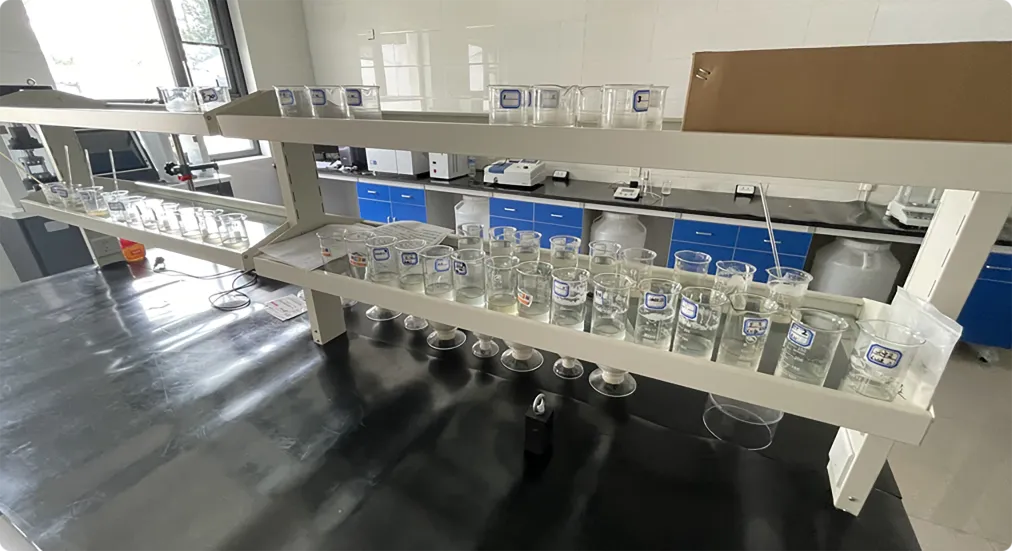
dec . 11, 2024 10:22 Back to list
Hydroxyethyl Cellulose Producers and Their Role in the Chemical Industry
Understanding Hydroxyethyl Cellulose Manufacturers
Hydroxyethyl cellulose (HEC) is a non-ionic cellulose ether widely used in various industries due to its excellent water-solubility, thickening properties, and ability to enhance the texture and stability of products. As a derivative of natural cellulose, HEC plays a crucial role in applications ranging from pharmaceuticals to construction, detergents, and personal care items. The demand for HEC has surged, leading to the emergence of numerous manufacturers specializing in its production.
The Production of Hydroxyethyl Cellulose
Hydroxyethyl cellulose is produced by the etherification of cellulose with ethylene oxide in an alkaline environment. The quality of HEC primarily hinges on several critical factors, including the degree of substitution (DS), molecular weight, and the consistency of the final product. Leading HEC manufacturers invest in advanced technologies and stringent quality control measures to ensure that their products meet the varying requirements of diverse applications.
Many manufacturers have adopted green chemistry principles, aiming to reduce environmental impact during the production process. These initiatives often involve using renewable resources and minimizing waste, aligning with global sustainability goals. This not only enhances the reputation of manufacturers but also caters to an increasingly eco-conscious market.
Market Demand and Applications
The versatility of hydroxyethyl cellulose has created a robust market demand. In the construction industry, HEC is used in cement-based adhesives, plaster, and tile grouts, improving workability and water retention. In the cosmetics and personal care sector, it acts as a thickener and stabilizer in creams, lotions, and gels. It is also extensively utilized in pharmaceuticals for drug formulations, providing controlled release properties.
Moreover, HEC is significant in the food industry, where it serves as a food additive to improve texture and moisture retention in products. The food-grade form of HEC meets strict regulatory standards, ensuring safety and quality for consumer consumption.
The growing focus on health and wellness has also propelled the demand for HEC in dietary supplements, where it is incorporated as a binder or a thickening agent.
hydroxyethyl cellulose manufacturers

Challenges Faced by Manufacturers
Despite the promising growth of the HEC market, manufacturers face several challenges. The sourcing of high-quality cellulose remains paramount, as variations in raw material quality can significantly impact the end product. Additionally, fluctuations in the prices of raw materials, especially due to global supply chain disruptions, can affect manufacturing costs and pricing strategies.
Another challenge is adhering to evolving regulatory standards across different regions. Manufacturers must ensure compliance with environmental regulations and product safety laws, which can vary significantly from one country to another. This requires continuous investment in R&D to develop safer and more efficient manufacturing processes.
Future Prospects
The future for hydroxyethyl cellulose manufacturers looks promising, with continuous innovations in product formulations and applications. The rise of smart materials and sustainable practices will likely influence the market dynamics, pushing manufacturers to adapt and evolve.
Additionally, as consumers increasingly prefer eco-friendly and sustainable products, manufacturers committed to using green technologies and renewable resources will gain a competitive edge. Collaborative efforts between manufacturers, researchers, and end-users will be vital in developing new applications and improving existing products.
Conclusion
In summary, hydroxyethyl cellulose manufacturers play a pivotal role in multiple industries by providing a versatile and essential ingredient for various applications. As the demand for HEC grows, manufacturers must navigate challenges and embrace opportunities for innovation, sustainability, and compliance. The marriage of advanced technology with environmental consciousness will define the future of HEC production, making it an exciting space to watch in the coming years. The commitment to quality, sustainability, and customer satisfaction will ultimately determine the success of manufacturers in this competitive landscape.
-
Unlocking the Benefits of HPMC Products: A Gateway to Versatile Applications
NewsAug.07,2025
-
Unleashing the Potential of HPMC Ashland: A Comprehensive Look
NewsAug.07,2025
-
Tile Bonding Cellulose: The Key to Superior Adhesion and Durability
NewsAug.07,2025
-
Hydroxypropyl Methylcellulose Powder: The Versatile Component in Modern Pharmaceuticals
NewsAug.07,2025
-
Hydroxyethyl Cellulose: The Versatile Solution for Various Industries
NewsAug.07,2025
-
Hydroxyethyl Cellulose (HEC): The Versatile Polymer for Various Applications
NewsAug.07,2025







